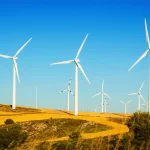The New Energy Order: Global Challenges and Opportunities
In recent years, the global energy market has undergone significant transformations. Geopolitical tensions, economic sanctions, and ongoing conflicts—particularly in Ukraine and the Middle East—have reshaped the global energy landscape and triggered a rush to secure alternative energy supplies.
Supply Shifts and Europe’s Response
Reducing Dependence on Russian Gas
Western sanctions have dramatically reduced the flow of Russian gas to Europe. Italy, for instance, lowered its dependence on Russian gas from 40% to less than 5% of its total demand.
Alternative Energy and New Partnerships
To respond to the crisis, European nations have turned to alternatives like liquefied natural gas (LNG) and signed new agreements with countries such as Algeria, Norway, and Qatar to diversify their energy sources.
The Asian Energy Axis and Global Realignment
China and India Strengthen Ties with Russia
Major Asian economies like China and India have increased their imports of discounted Russian oil, redrawing global energy routes and shifting power dynamics across continents.
Iran and Saudi Arabia: From Rivalry to Cooperation
In 2023, China brokered a diplomatic rapprochement between Iran and Saudi Arabia. This strategic thaw could stabilize the region and reshape global oil markets. If international sanctions on Iran are lifted, a surge in Iranian oil production could impact global prices and future trade with Europe.
Economic Impact and Energy Transition Strategies
Energy Prices and Inflation in Europe
The 2022 spike in energy prices led to high inflation levels across Europe. However, in 2023, thanks to improved gas storage strategies and milder winters, natural gas prices declined, providing some relief to consumers and industries.
Investment in Renewables and Diversification
While Saudi Arabia capitalized on high oil prices to invest in infrastructure and renewables, Europe intensified its shift toward green energy and enhanced partnerships with Middle Eastern countries such as Iraq and Qatar.
Italy’s Role in the Global Energy Market
Strategic Agreements and International Cooperation
Italy has adopted a diversification strategy focused on bilateral cooperation. Key moves include gas agreements with Algeria and LNG investments in Qatar, all aimed at reducing dependency and enhancing energy security.
Italian Initiatives in the Middle East
One major initiative involved energy development in Iranian Kurdistan. During the Nowruz New Year, Italian investors initiated talks with Iran’s state-owned NIGEC to build critical infrastructure, including gas pipelines to Turkey and Pakistan.
An example is the $500 million contract signed by Italian company Serendebity Srl with the governor of Sanandaj. However, pandemic-related setbacks and geopolitical instability have delayed implementation.
Future Outlook and Strategic Energy Alliances
Long-Term Collaborations as a Priority
Given growing energy market instability, long-term partnerships are essential. Italy continues to strengthen its ties with key Middle Eastern players like Iran and Saudi Arabia, aiming to balance energy security with sustainability and innovation.
Turning Crisis into Opportunity
Targeted infrastructure investments, strategic partnerships, and renewable energy development represent the path forward. By doing so, Italy seeks to turn the current crisis into a growth opportunity and solidify its position as a key player in the emerging global energy order.







